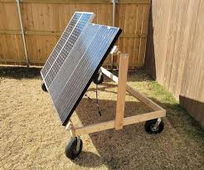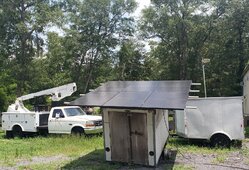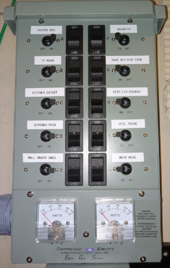I have always had a battery back up system. Usually old boat or tower site batteries. Then I moved into LiFePO4. Then added a few solar panels to it for BACKUP WITH BENIFITS

The savings was the Benefits. The main goal was to get through our famous thunder storms, tropical depressions, and pain in the ass hurricanes. During these events power goes out with no automatic generator. Hard to go out and start one up during the storm event. Afterwards my boat is a 126 gallon gas can.
So Yes, I really enjoy my fridges, freezers, and mini split running all night long

As stated previously the Mini-Split in the bedroom and raising the rest of the house up created a multiplier of savings.







